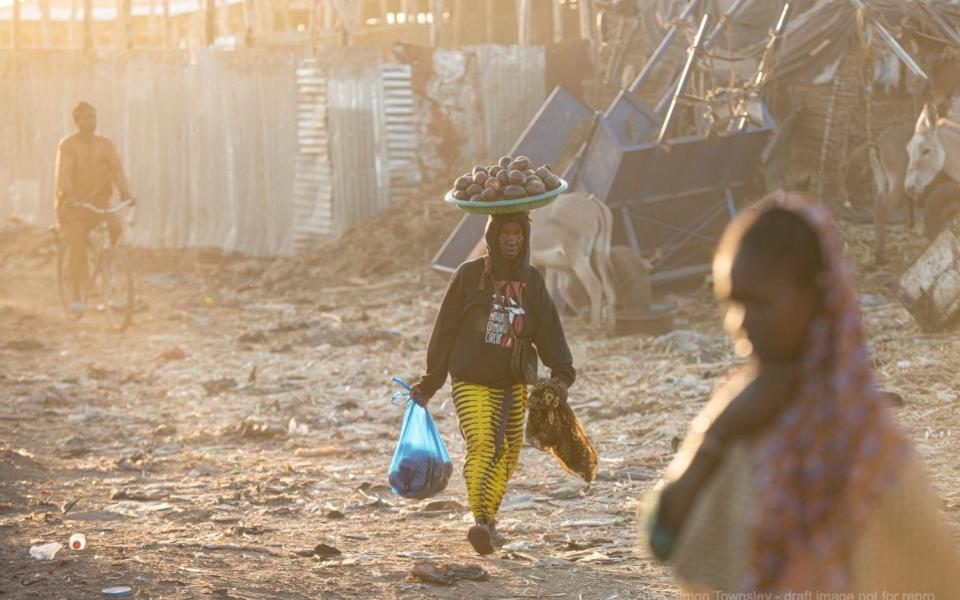Sahel crisis: charities warn of famine in Mali as militias leave farmers too scared to plant crops

For generations, the villagers of Mali's Dogon Valley have been famed for their ability to grow crops in some of the hottest, driest places on earth.
By carefully conserving every last drop of water, they could coax millet, sorghum and groundnuts from the sun-baked land around them. During this summer's planting season, though, merely being a good farmer is no longer enough.
For every time the villagers venture out to plant, they are being attacked by the armed groups who have plunged the valley into ethnic warfare.
For the last four years, tit-for-tat massacres have been taking place between the ethnic Dogon, who are mainly farmers, and their Fulani neighbours, who are cattle herders.
What was once a breadbasket has now become a killing field, with entire villages wiped out by rival ethnic militias.

"The weekend before last, seven people who were trying to sow crops in one village were shot," said a trustee with one British charity working in the valley, which The Telegraph is not naming because of the risk of reprisals.
"People need to sow their crops in June or early July in order to stand a chance of a harvest, and time is now running out."
During last year's planting season, the charity was able to enlist the help of helicopters from the UN peacekeeping mission to Mali, which patrolled the area on days after heavy rains, when farmers normally venture out to plant. Their presence alone was enough to frighten off the armed groups.
This year, however, the charity claims there has been far fewer flights in June, leaving the villagers afraid to go out for much of the planting season.
"The armed groups come in groups of 25 on motorbikes, shooting their guns," said one villager, who asked not be named. "We are living in total insecurity – we can't go anywhere, we can't grow crops, we can't trade and we can't raise livestock."
The conflict is a brutal microcosm of the wider security crisis now gripping the entire Sahel region, where al-Qaeda and Isil jihadists are stirring up long-running ethnic tensions over access to land. Sometimes compared to Utah's Monument Valley, the Dogon Valley is dominated by a spectacular 500-metre high sandstone cliff that runs through nearly 100 miles of central Mali.

The Dogon people have lived in villages around the cliff edge for centuries, using constructing terraces, ponds, planting pits and earth mounds to overcome shortages of soil and rain.
From the 1990s, they also developed their own low-budget tourism industry, with visitors staying in the villages scattered around the foot of the cliff. Over the last decade, though, the growing threat from jihadist groups in Mali has rendered the area largely off-limits for Westerners.
With the tourism industry having collapsed, some desperate locals are said to have turned to banditry or joined the jihadists' ranks. Meanwhile, jihadist groups have been stoking hostilities between the Fulani, who are mainly Muslim, and the Dogon, many of whom still practice traditional religious beliefs.
In response to jihadist attacks, local Dogon hunting groups have set up their own self-defence militias, one of which massacred more than 150 Fulanis in the village of Ogossagou last year.
Three months later, more than 100 ethnic Dogon were killed in an apparent revenge attack. Tensions between the two ethnic groups have been made worse by desertification in the area, which has increased competition for fertile land.

Local aid workers now fear that the fighting is threatening to spark a famine as well. They believe that more than half of the 700,000 strong Dogon farming community have been unable to sow crops this summer.
"It doesn't involve a huge number of flights – just enough during the planting season and then some more in November when the harvest takes place," said one. "Investing now is infinitely cheaper than trying to provide food aid to many people later."
A spokesperson for MINUSMA, the UN peacekeeping mission to Mali, insisted to The Telegraph that it regularly sent helicopters to "monitor, show force and dissuade attacks on villages" in the Dogon region.
As The Telegraph went to press, the charity said that new helicopters had been seen flying in the region and that villagers had been able to resume planting.
Protect yourself and your family by learning more about Global Health Security

 Yahoo News
Yahoo News 